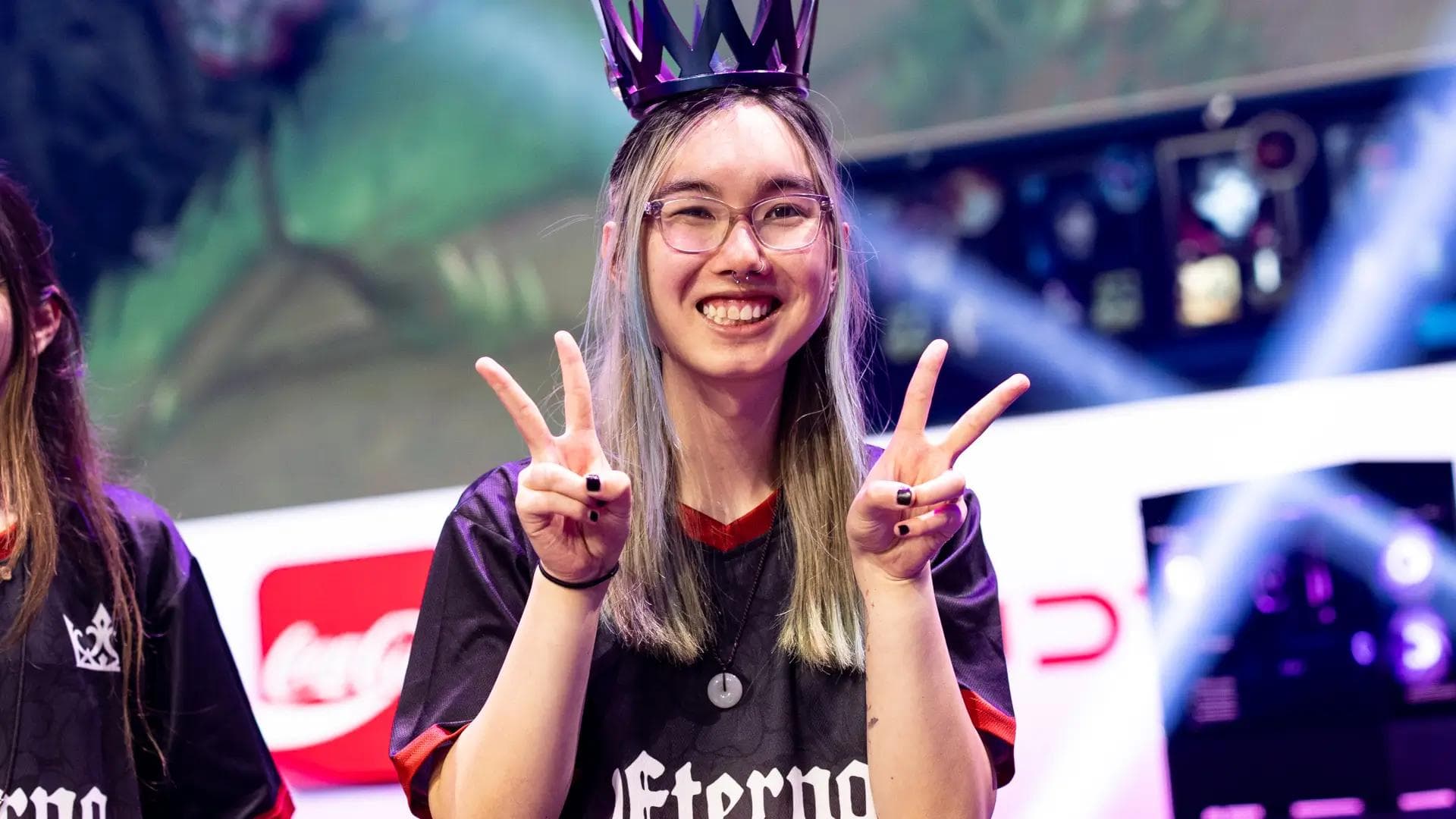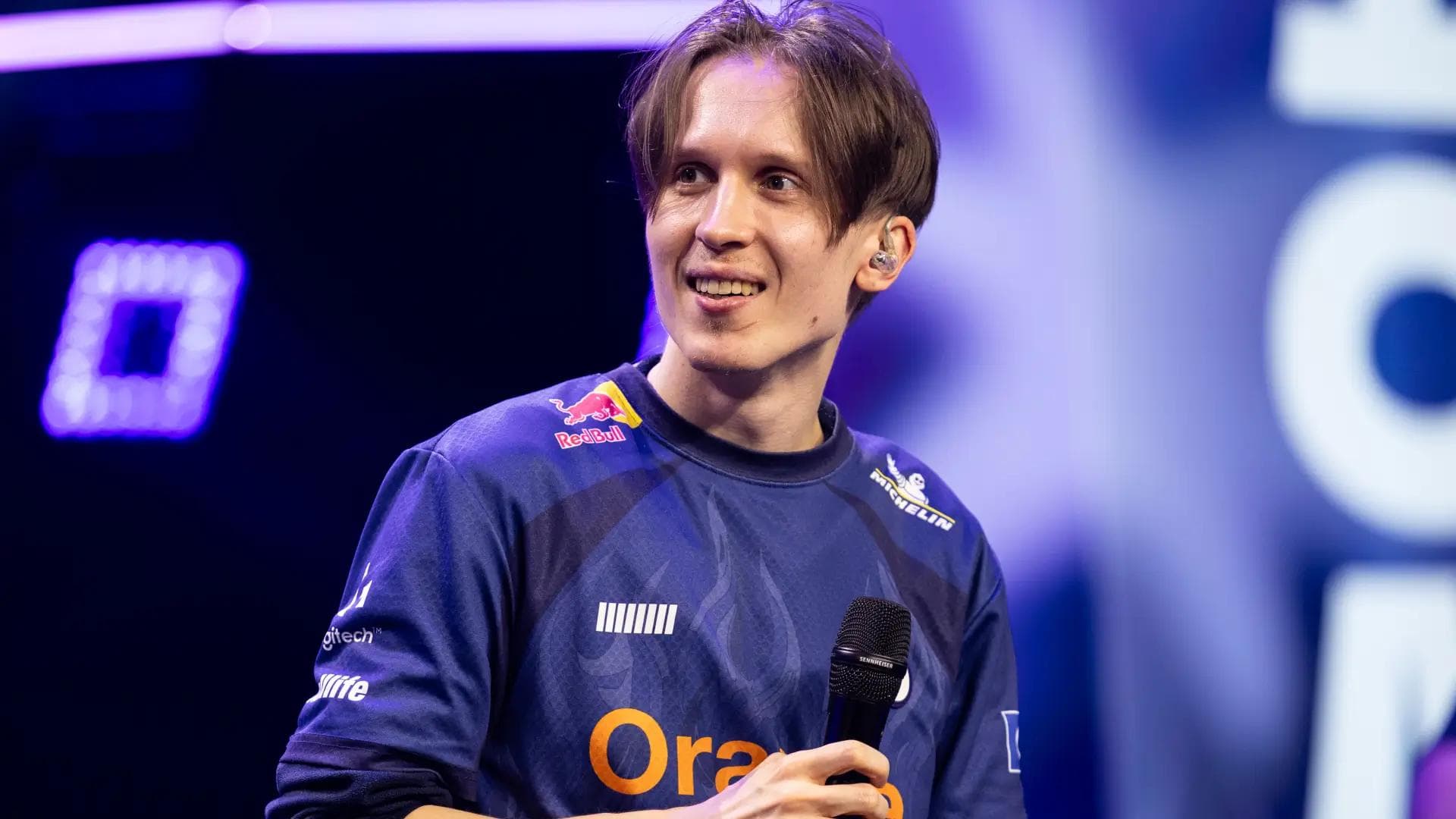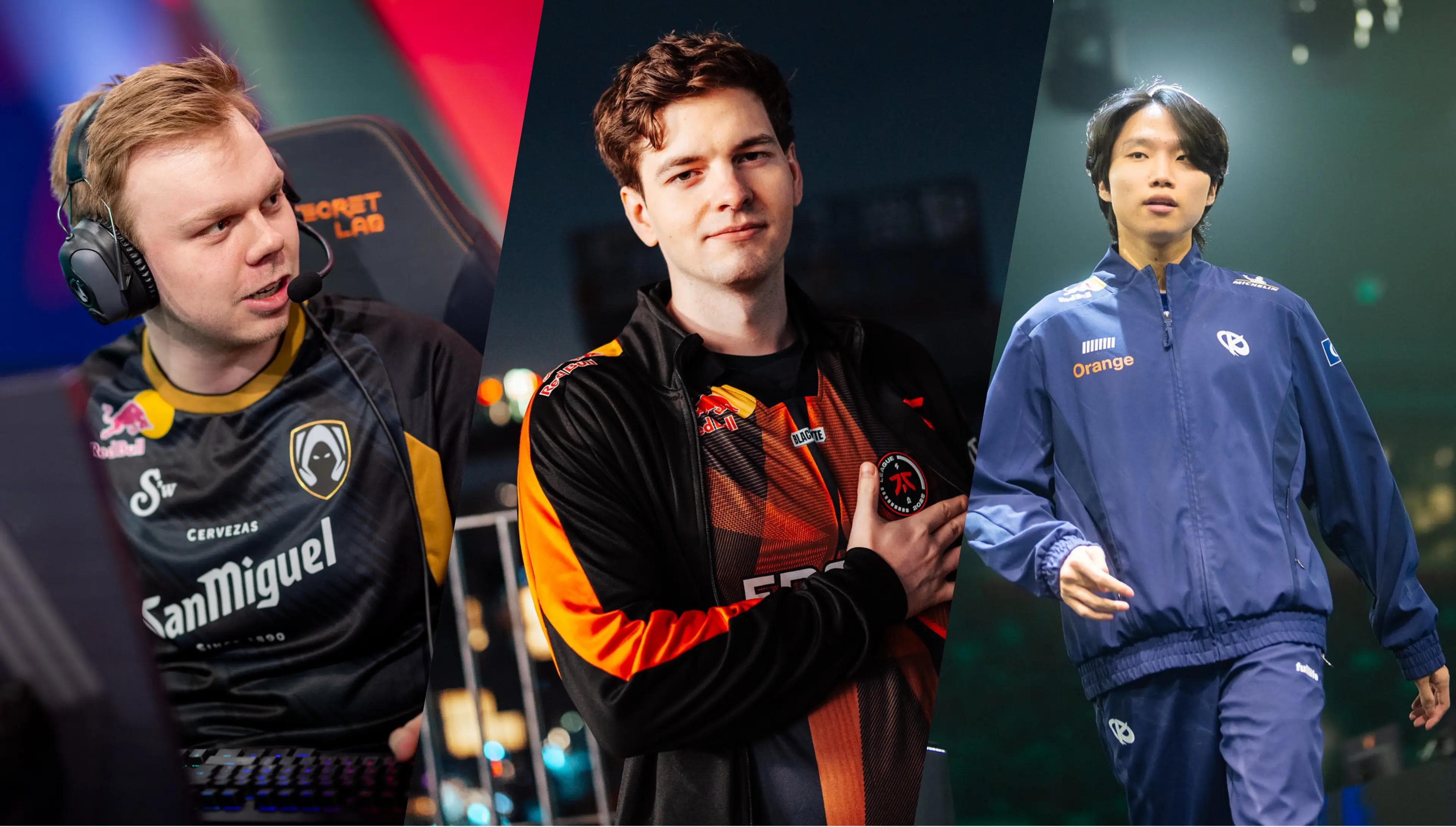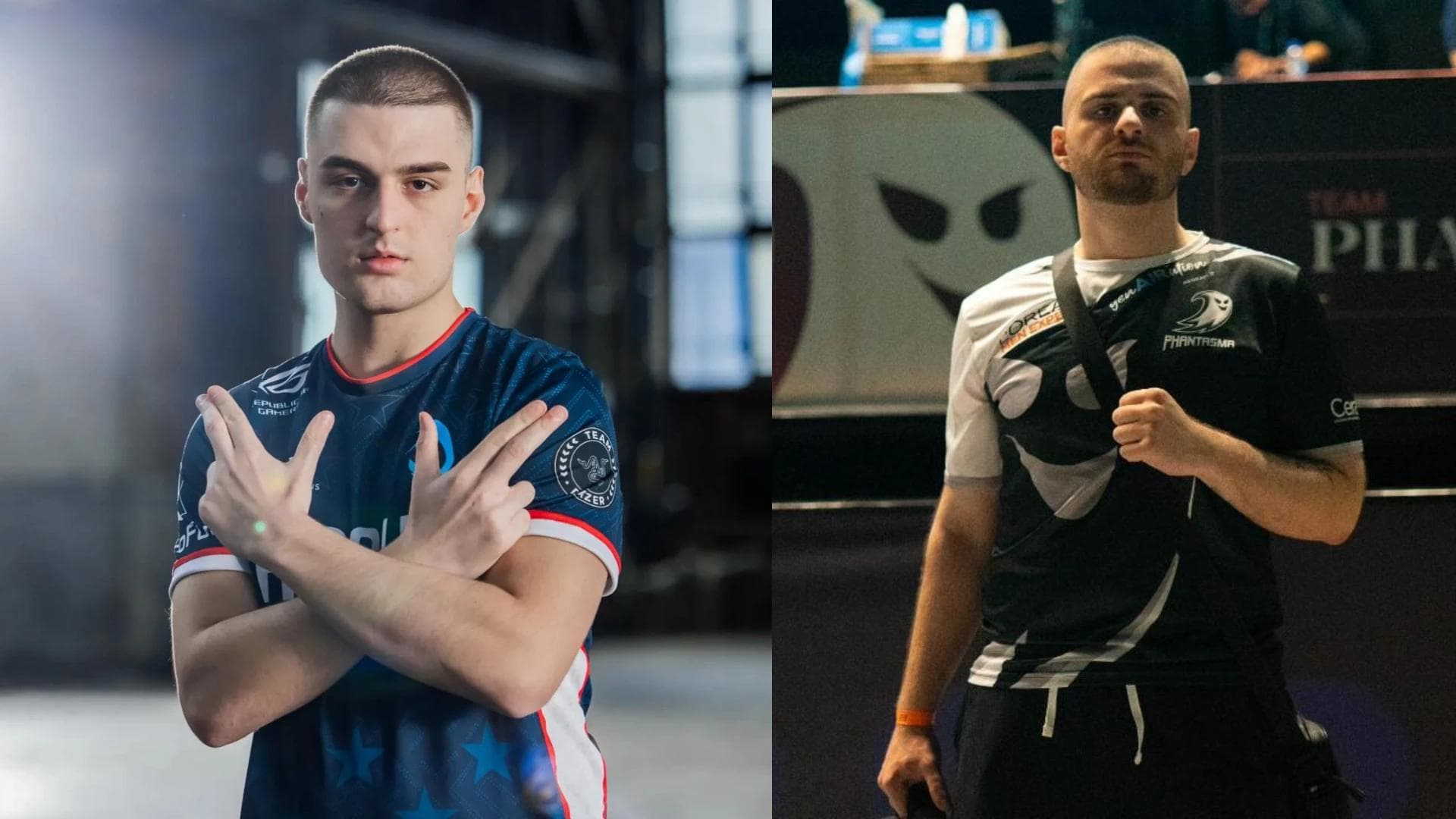"Now, I think it's perhaps the most solid lane we have"
Leading the Aegis coaching staff for the 2024 LFL season, Thomas "Chama" Chalmandrier shares his experience after transitioning from analyst to Assistant Coach, and then to Head Coach, and how this influences his work within the organization.
Hello Chama, thank you for being with us. At Aegis, you've transitioned from analyst to Head Coach. How did that go?
"It went very well from the start. I had been creating tools to help coaches for over two years, adapting to their needs and goals. Now, I use that experience for myself as the coach."
"Additionally, I had quite a few ideas in mind that were implemented from the moment I took over the staff, which was quite exhilarating."
Regarding your role swap, how did that happen? Was it a desire of yours, or were you directly approached for the position?
"Actually, I had already touched on the subject with them a bit. I had officially become an Assistant Coach during the year because I had shown that I could do more than just the role of an analyst."
"So, when the time came to recruit a new Head Coach, they approached me. They had other coaches in mind, and I was part of a shortlist. At the end of the process, I was chosen."
This is the first time you've built a roster. What were your objectives, and what obstacles did you encounter during its creation?
"Firstly, we needed French residents. That's always the first step when building a team. That's why Veignorem was quickly locked in."
"Then, I like having two types of profiles: rookies who bring new ideas and veterans who structure the game. It's a mix that works very well because each learns from the other. That's why Nafkelah and Hido quickly joined the roster. The midlane and botlane are positions where it's very interesting to rely on rookies."
"After that, we chose Agressivoo again for his residency but also for his veteran side. And finally, as some may have followed during the transfer window, our first choice for the jungler was Elramir, which unfortunately didn't work out."
"So, our focus shifted to Ryuzaki to complete the roster, but it worked very well. He fills almost the same role that Elramir would have had, and I think he is now one of our best players. I'm very happy with him."
How is communication within the team? Do you have a main shotcaller? Two? Did the leadership develop naturally, or did you try to impose a specific vision?
"In the early game, it's almost always the jungle who shotcalls in all teams. So, for us, Ryuzaki takes charge from 0 to 12 minutes, then Agressivoo takes over."
"This rotation happened naturally; experience made the difference. Agressivoo is, I think, the most talented player in terms of understanding and knowledge of the game, which explains his role."
"At that level, it's almost like micro-managing compared to other players, but he handles it very well, and the players appreciate this way of doing things. Especially for Hido and Nafkelah, knowing what they should do in the midgame helps them move to the next level in the LFL, where there's a noticeable gap in skill compared to other leagues."
Speaking of Hido, how is he handling his first year in a major ERL? Do you have to adapt your coaching to this mix of veterans and rookies?
"For Hido, I thought it would be much more complicated at the beginning, especially because his profile is completely different from Veignorem's. During recruitment, it didn't bother me; I thought the two would learn from each other, with Hido pushing Veignorem and Veignorem providing guidance to Hido in styles of play that were initially unrelated."
"We also knew we could take on a positional coach, so initially, I wanted someone to specifically support the bot lane. However, it turned out we didn't need one; the bot lane strengthened much faster than expected, mainly because the two spent hours discussing the game and learning from each other."
"The first month was challenging, of course, as they were doing completely different things and didn't understand each other's approach to the game at all. But now, I think it's perhaps the most solid lane we have, so I'm quite pleased with the choice we made in the end."
How do drafts work at Aegis? Is it you who bring draft plans adapted to your players, or do players sometimes want to play a pick and you adapt the draft around that?
"I think I have players who know what they want to do. When they have ideas, I always give them room to test them in scrims at a minimum."
"However, for official matches, I'm pretty strict about only playing what we've practiced in scrims. It's a bit different from, for example, Eika last year, who could pick things he hadn't necessarily played in scrims because he has more experience."
"But this year, we're trying to be quite consistent with our scrims. For training, players can bring whatever they want; I construct a lot of scenarios for them. I try to do a lot of the legwork for them, halfway between what an analyst would do for a Head Coach, I think that's where the transition is most visible."
"I also rely heavily on statistics to determine which champions could help us cover our weaknesses or counter the opponents' strengths."
Speaking of scrims, how does your training schedule work? Nightblocks are becoming increasingly popular; is this something you consider at Aegis, or do you prefer to stick to a common scrim schedule where Solo Q is just as important?
"I think Solo Q is very important. Especially since the season started in early January, and I tend to distribute it in the form of sprints, focusing more on scrims initially. It was crucial to start with, so we did a lot of scrims in December on the new patch. When Solo Q came out, we focused a lot on it."
"Ultimately, we had a very classic scrim schedule; we just did one nightblock, but it wasn't something we pushed. We really wanted to give players time for Solo Q, which they enjoy, and it's where I think they train best and become strongest individually, which is very important at the beginning of the split."
"For the second half of the split, on the other hand, we'll go back to a more scrim-oriented schedule, and I think we'll do more nightblocks."
Aegis is a team with many fans. How do you, as a coach, handle the pressure that comes with being followed by so many people?
"It's actually good pressure because Aegis fans are very supportive no matter what happens; they are always there for us. It's a kind of unconditional love. The downside is that we can get a bit carried away by the fact that no matter what, things will be okay."
"But I don't think I have that mindset. As a coach, I feel much less pressure than the players who are in-game. For me, it's motivating because whenever something goes wrong, we tend to question ourselves, whether it's the draft, training, or the processes we've put in place with the players on which player to focus on for improvements."
"But the fans are immediately in the mentions and private messages offering support, so from my side, it's very positive. For the players, you'd have to ask them, but I've never had any negative feedback from them. I think they all find it very positive."
Do you have any final words you would like to address to the fans, your players, or others?
"Thank you very much to the fans who follow us because it's always a pleasure. I need to see them because we went 0-2 this week, so I'm more disappointed for them than anything else, and of course, for the players. But thank you for continuing to support us."
Watch the full interview on our YouTube channel.
Photo credit : Elliot Le Corre








/Comments
Write a comment